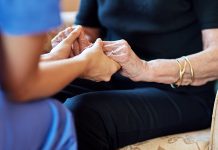A formal strike notice was issued yesterday to the 20 district health boards but if mediation leads to an improved offer, an online ballot will be held prior to the July 5 strike going ahead.
In the lead-up to Friday’s mediation between the 20 DHBs and New Zealand Nurses Organisation an urgent online survey is underway by NZNO to help guide the mediation with 11,000 NZNO DHB members responding within the first 36 hours. The survey closes at 1pm today.
With the prospect of a strike now imminent some nurses not rostered on the strike day are offering to ‘buddy’ up to share the cost of striking by offering to pay half their shift to a striking nurse or offering to swap their shift onto a strike day to support a less well-off colleague.
DHB spokesperson, a nurse and Bay of Plenty DHB chief executive Helen Mason has said DHBs will do everything they can to settle the agreement and avoid the strikes but no more money is available beyond the $500m over three years already allocated to the rejected offer. Health Minister Dr David Clark has said nurses’ frustration was understandable after feeling undervalued, but “you cannot fix nine years of underfunding in one pay round”.
It is now up to mediation to see whether the rejected third pay offer can be “reconfigured” or improved to resolve the impasse after 12 months of unsuccessful negotiations and a decade or more of simmering frustration from hospital nurses about unsafe staffing levels for their increasingly complex and ageing patients and stagnant pay levels.
NZNO yesterday delivered the fortnight’s formal notice to the chief executives of the 20 district health boards that its nearly 30,000 nurses, midwives and healthcare assistant members working for the DHBS, will walk off the job for 24 hours from 7am on July 5. Notice for a second strike on July 12 was due to be delivered on June 27.
NZNO industrial services manager Cee Payne said it was has been very pleased with the quick response to the survey which asks nurses for feedback on aspects of the rejected deal including the timing of the percentage increases, safe staffing initiatives, pay steps, lump sum, pay equity proposal and the length of the proposed agreement.
“Obviously we will be clear what our members want after the survey and that will inform what we say in mediation,” she said.
An online poll of the general public on the NZ MSN website this week got 2000 responses with 38 per cent saying they thought nurses were “right to reject the offer”, 30 per cent saying they supported the nurses’ dispute but it was “getting out of hand”, 23 per cent said nurses should have taken the deal and 9 per cent were unsure.
NZNO has agreed that if mediation, starting on Friday, leads to an improved offer with the potential to resolve the dispute then the union will use the “exceptional circumstances” provisions in the constitution to allow an online ratification ballot.
Mason said the 20 DHBs had been hoping for the best but planning for the worst and was several months into contingency planning and on receiving the strike notice today – would “absolutely ramp up” those contingency plans.
“The thing I stress with contingency planning is that from our perspective patient safety is absolutely paramount. And the safety of our staff is equally important.”
NZNO Chief Executive Memo Musa has said that strike action is a last resort but, should it go ahead, that NZNO agreed that patient safety was paramount.
The DHBs began contingency planning in late March and NZNO and the DHBs have been meeting to discuss the Code of good faith for public health sector requirement to ensure that life-preserving services are available to prevent a serious threat to life or permanent disability during any strike action.
Mason said now the strike notice was issued that individual DHBs would begin notifying affected patients of the postponement of elective surgery and other non-urgent services around the time of the strike.
She said it would also begin ensuring that the public were reassured that during the strike that people needing urgent medical treatment should not delay coming to hospital or dialing 111. People should also continue to engage with their local general practice, pharmacist or phone the 24-hour Healthline for advice from a registered nurse.
“We want to make sure that people are reassured now – so nobody is not taking up the opportunity for urgent medical care.”





















